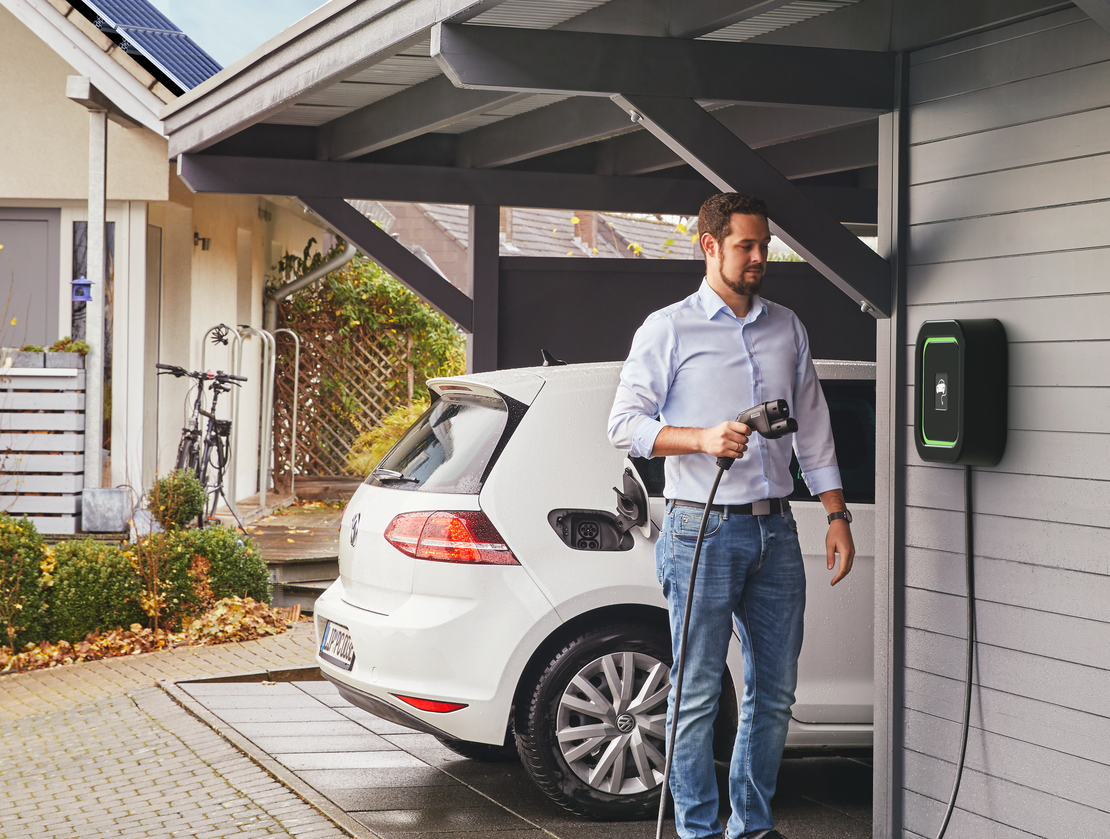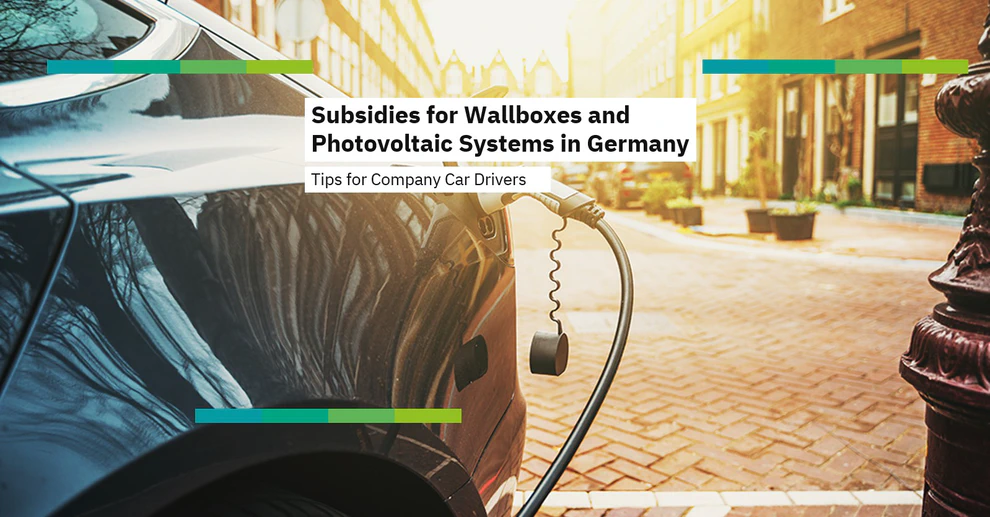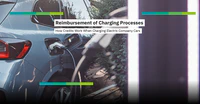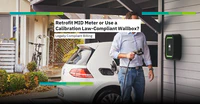E-mobility is becoming increasingly important, and with it, the need to create suitable charging infrastructure. Company car drivers can benefit greatly, especially by using wallboxes and photovoltaic systems. In this post, we take a look at the current subsidy opportunities and how they can be utilized. All subsidies mentioned in this article apply specifically to Germany.
Important Note: Even if some subsidy programs have already been exhausted, it is worth regularly looking out for new subsidy opportunities. It is very likely that further subsidies will be available in the future.
KfW Subsidy 442 - Solar Power for Electric Cars (Exhausted)
The KfW Subsidy 442, introduced on September 26, 2023, offered private individuals the opportunity to receive a grant of up to €10,200. This subsidy was specifically aimed at supporting the installation of wallboxes , photovoltaic systems , and stationary solar storage. The goal was to charge electric cars at home with self-generated solar power, thus contributing to e-mobility and grid stability.
To be eligible for the subsidy, applicants had to prove a combination package consisting of an existing or ordered electric car, a new wallbox, a new power storage unit, and a new solar system on the roof. The amount of the grant depended on the performance or capacity of the individual components.

Regional Subsidy Programs in North Rhine-Westphalia
In North Rhine-Westphalia, there are still subsidy opportunities for the purchase, installation, and connection of charging infrastructure. Here are some details:
- Multi-family houses: The state covers up to 40% of the costs and a maximum of €1,000 per charging point.
- Basic installation in parking lots: For parking lots with at least 20 parking spaces, 20% of the costs up to a maximum of €50,000 are covered.
- Grid connections: 20% of the costs up to a maximum of €10,000 are reimbursed. Eligible applicants include private individuals, landlords, tenants, homeowners’ associations, freelancers, and companies. An important requirement is that the electricity comes from renewable sources, such as green electricity.
Subsidies from Municipal Utilities and Other Programs
In addition, some municipal utilities offer special subsidy programs for the development of charging infrastructure.

The reason is clear: owners of electric vehicles are expected to consume more electricity and thus become more important customers in the long term. These grants essentially serve customer retention. However, this also means that one should not be tempted by a small monetary grant to sign an overpriced electricity contract – a tariff comparison is essential for anyone switching to e-mobility.
- Ahaus : 40 kWh for registering a charging facility (Lokalwerke Ahaus).
- Castrop-Rauxel : €100 for the purchase of a private charging station, provided green electricity is used (Stadtwerke Castrop-Rauxel).
- [Dachau](https://www.stadtwerke-dachau.de/tarife-angebote/e-mobilitaet/wallboxen-zum-aktionspreis : €125 for the purchase of a wallbox through Stadtwerke Dachau, credit of €25 over 5 years on the electricity bill.
- Düsseldorf : 60% of the costs, up to a maximum of €2,000 for existing buildings and 50% of the costs, up to a maximum of €1,000 for new buildings.
- Frankfurt/Oder : Up to €500 for the purchase of an FF-Home-Charger, provided there is an electricity, natural gas, or heat supply contract (Stadtwerke Frankfurt/Oder).
- Fürth : €200 for the purchase, installation, and commissioning of a private charging station (InfraFürth).
- Grünwald : 50% of eligible costs, subsidy capped at €1,500 per charging point (Gemeinde Grünwald).
- Heidelberg : 50% of the acquisition costs, up to a maximum of €1,000, for the installation of a private charging station (Stadt Heidelberg).
- Höxter : €100 for the purchase of a wallbox, valid only in the supply area of Gas- und Wasserversorgung Höxter GmbH.
- Konstanz : Up to €150 for the purchase and installation of private charging infrastructure, supplied in the SeeEnergie ÖkostromPlus tariff (Stadtwerke Konstanz).
- Limburg : Up to 25% of net costs, up to a maximum of €500, for the purchase and installation of private charging infrastructure (Stadt Limburg).
- Mainz : €400 for an e-wall charging station, the electricity supply must be with green electricity from Mainzer Stadtwerke.
- Munich : Up to 40% of the net acquisition costs of the charging station, the maximum subsidy amount depends on the type of charging station (Stadt München).
- Kreis Segeberg : Up to 50% of eligible costs for private charging infrastructure, up to a maximum of €1,000 for private wallboxes.
However, the subsidies are usually tied to certain conditions. Examples of such requirements include the use of certified green electricity or solar power, which is a basic requirement for many subsidies. In addition, some subsidies are only available to residents of certain supply areas or cities. Often, the installation of the charging station must be carried out by a certified specialist company to receive the subsidy. In some cases, it must also be proven that the charging station is actually used, for example by submitting electricity bills. It is advisable to check the respective city or municipality’s website, as this list does not guarantee completeness. It is important to note that only private subsidies are considered here. Many cities and municipalities also offer subsidies for commercial purposes.
How the Charge Repay Service Can Help You
While subsidy programs reduce the costs of wallboxes and photovoltaic systems, billing the charged electricity, especially for company cars, remains a challenge. This is where the Charge Repay Service comes into play. Our service allows you to charge and bill your company car at home in compliance with calibration law. The advantages:
- Calibration-compliant billing : Meets all legal requirements.
- Compatibility and integration: Supports all wallbox models and is seamlessly compatible with photovoltaic systems.
- Transparent cost breakdown: Detailed billing of the charged electricity amounts and costs. With the Charge Repay Service, you can conveniently charge your company car at home and ensure precise, legally compliant billing.
Conclusion
The promotion of wallboxes and photovoltaic systems plays a crucial role in promoting e-mobility. Even if some of the major subsidy programs have already been exhausted, there are still numerous opportunities to receive financial support. You should regularly inform yourself about current subsidy opportunities and take advantage of them to fully exploit the benefits of e-mobility.




